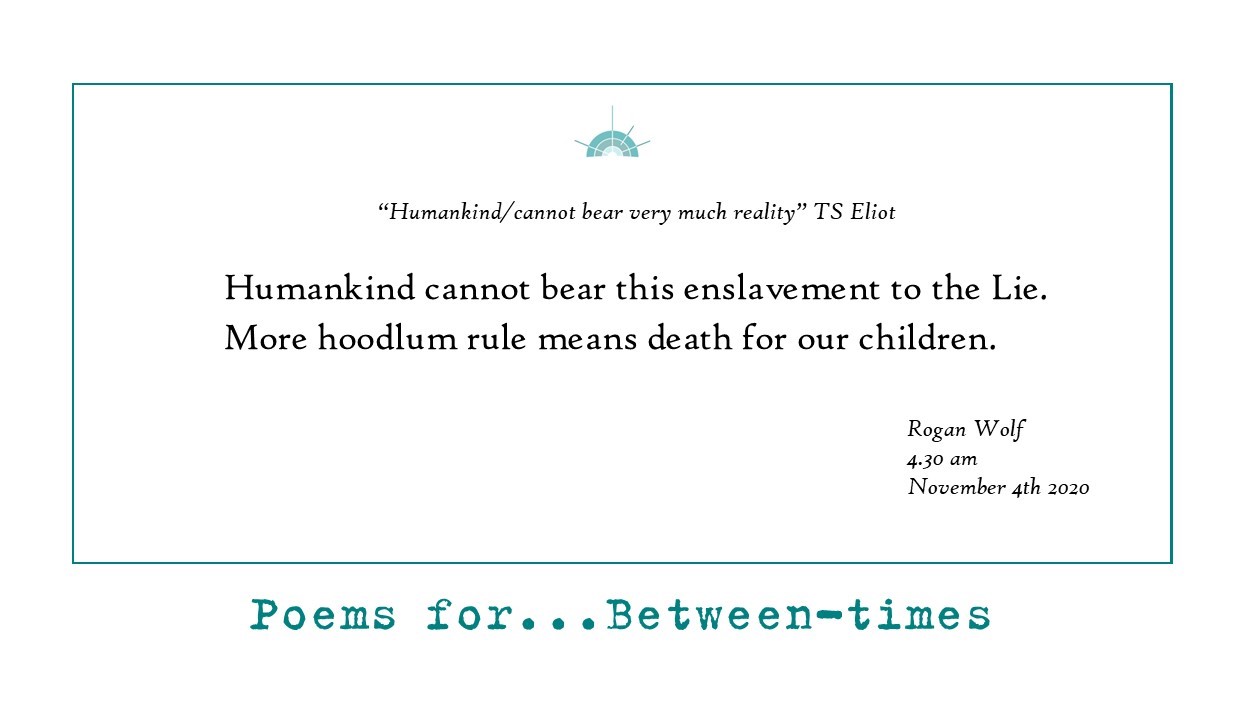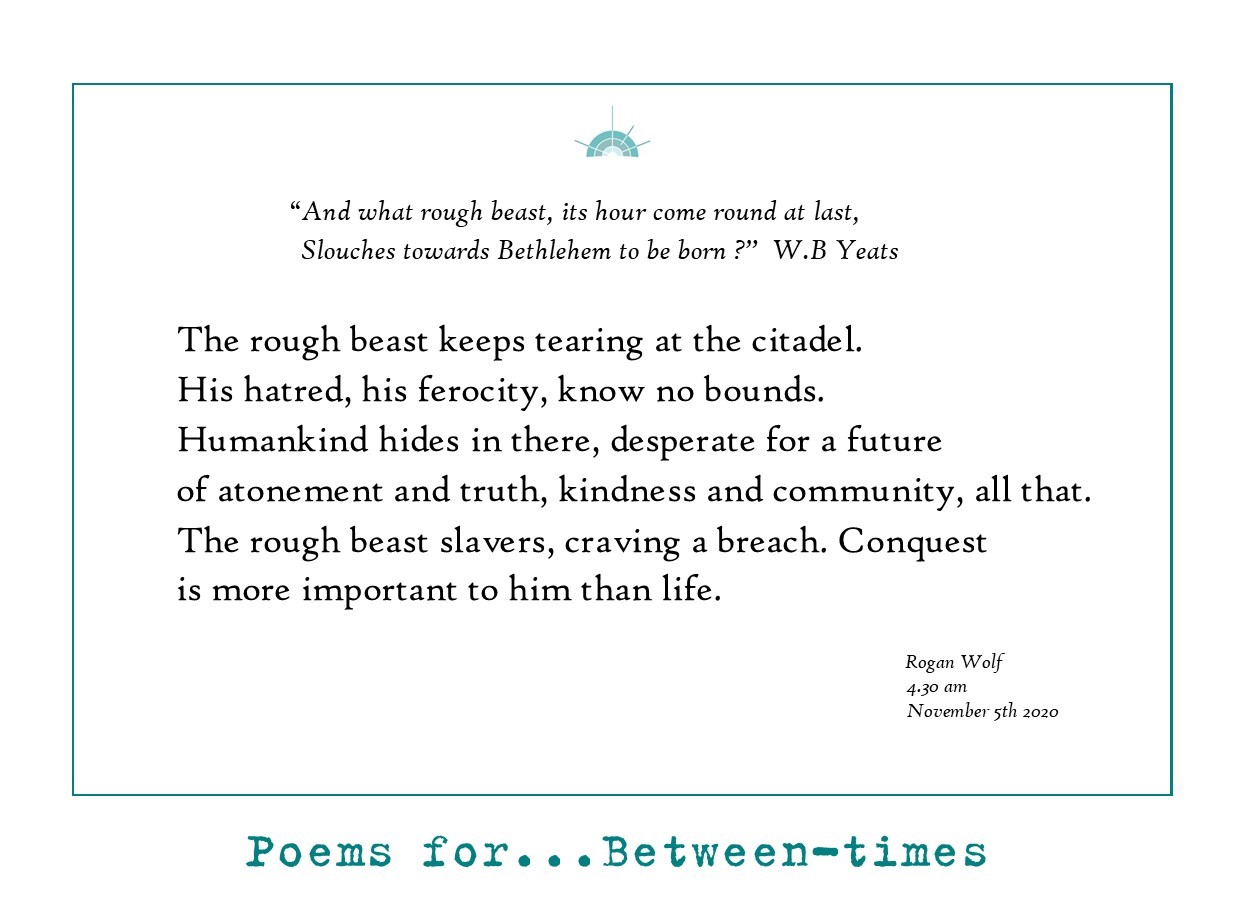
In all our sanctuaries we sit at risk
-
-
-
Words for an Earthquake

The United Kingdom has left the EU. We have vacated our seat at the high table and it is laid now for just 27 places. We’ve “got it done.”
Or “gone and done it.”
In recognition of the significance of this momentous step we’ve taken, whatever it may mean, I am uploading here a selection of 53 stand-alone short rhyming stanzas, commenting and reflecting on events and developments in the UK through 2018 and 2019, up until Britain’s official withdrawal from the EU on January 31st 2020.
The selection is taken from a much larger total. Through all the suspense of that time, I was writing these stanzas partly as a record, but also as a kind of personal safety valve. I uploaded them one by one as soon as they were written – almost 170 stanzas in all.
Their format is a seven-line stanza called “rhyme royal,” introduced to English literature in the fourteenth century by Geoffrey Chaucer. And a great deal of their imagery is borrowed from a long satirical poem written a century later, in the early part of Henry 8th’s reign, called “Speak Parrot.” This was written by John Skelton – in rhyme royal stanzas.
The earlier and much larger total of stanzas can still be found here, in chronological order, with notes at the back, which provide a context.
In making the selection, less than a third as many as in the original series, I have taken out most of the story line, several characters and, of course, the suspense. What remains is chiefly a set of reflections on the main themes and concerns of the time – such as the essence of democracy, what it needs to survive and recover, the issues of truth telling and worthy leadership, the relevance of honour and our sense and defence of the sacred.
The picture at the top of this post is of the Tyndale Monument, overlooking the Severn Estuary. William Tyndale was alive at the same time as Skelton and took even greater risks for the “liberty to speak.” He was executed for doing so. Skelton’s parrot is still alive and has done some more speaking in these stanzas. But now he has retreated to the top of the tower in this picture. The parrot is a bird of paradise and needs a home and stand-point in which he feels secure and of which he can be proud. Tyndale’s tower provides that home and the parrot now looks out from there, watching for worthier times.
The collection represents a kind of distillation in hindsight, a serious attempt to look back into and through the fog, chaos, upset and disarray of those two years, to learn whatever can be learnt from this wanton act of juvenile destructiveness which we have accomplished.
Posted:
-
What does Great Britain Stand for, these Days ?
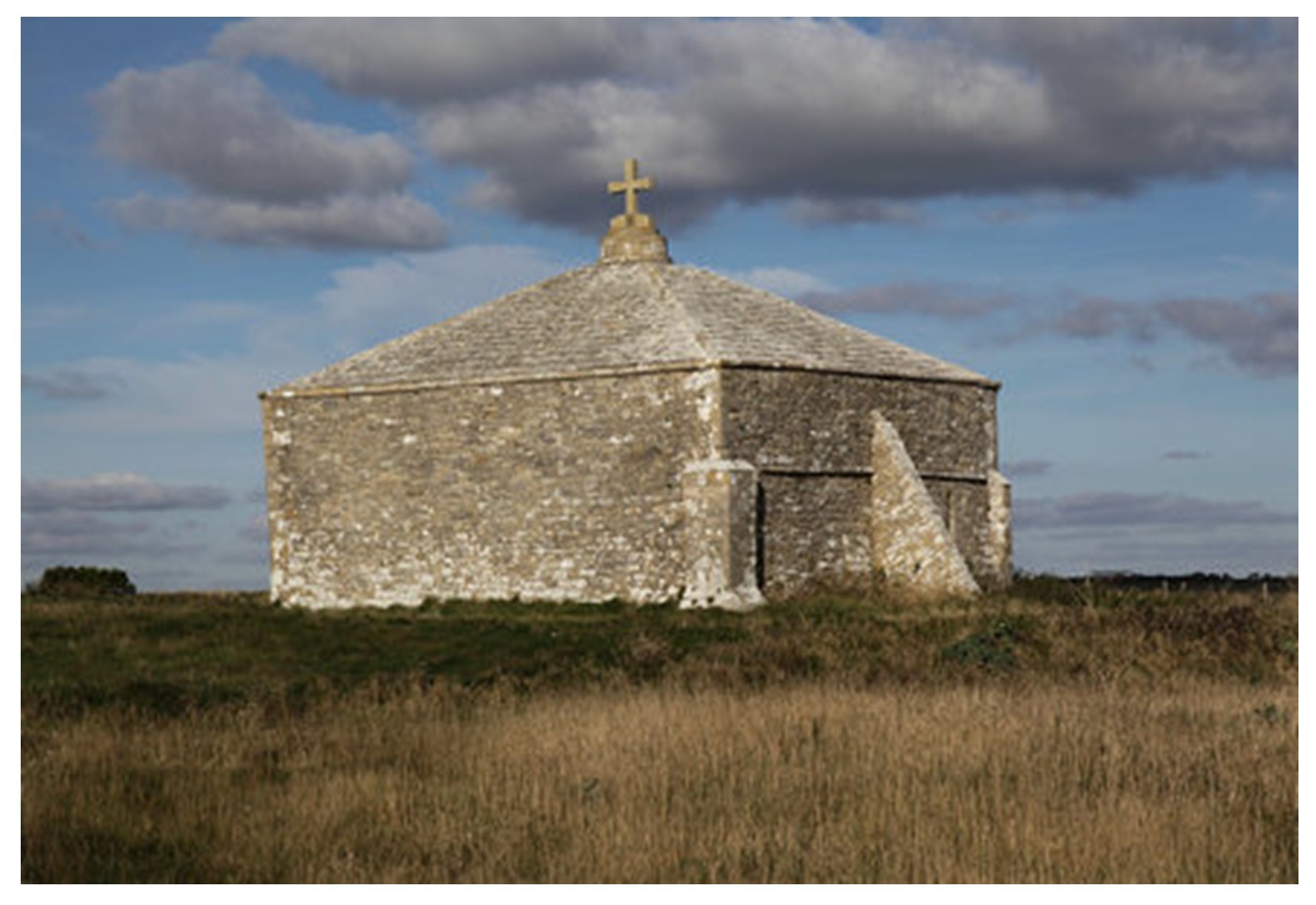
What do we Brits stand for, these days, now that we have “taken back control” ?
Judging by our government’s grossly inadequate management of Corvid-19 – we stand for incompetence, incoherence and dishonesty.
Judging by Mr Johnson’s recent conduct over the Brexit negotiations – we are represented by the fatuous and delusional bravado of a juvenile hoodlum ; and again by dishonesty, along with a careless and disgraceful contempt for international law.
Judging by Mr Johnson’s recent dealings with the present Mayor of London over TfL – we stand for rampant and dysfunctional control-freakery, and by gangland competitiveness ; and of course, by more dishonesty.
We are discovering what we meant by “take back control” when 52% of the UK population voted, in that dodgy referendum of 2016, to leave the EU. We meant surrender control to sleek and unworthy hoodlums, more or less led by a lying felon, Mr Toad.
About this time three years ago, I read some poetry in St Aldhelm’s chapel, pictured above. This is a small Norman structure on the edge of a Dorset cliff, facing south. Having no connection with the national grid, it is cold and damp and dark, like a cave on a height. The poem just below is one of the several I read there. I have posted it up before here but, having nothing to add, keep wanting to repeat it :
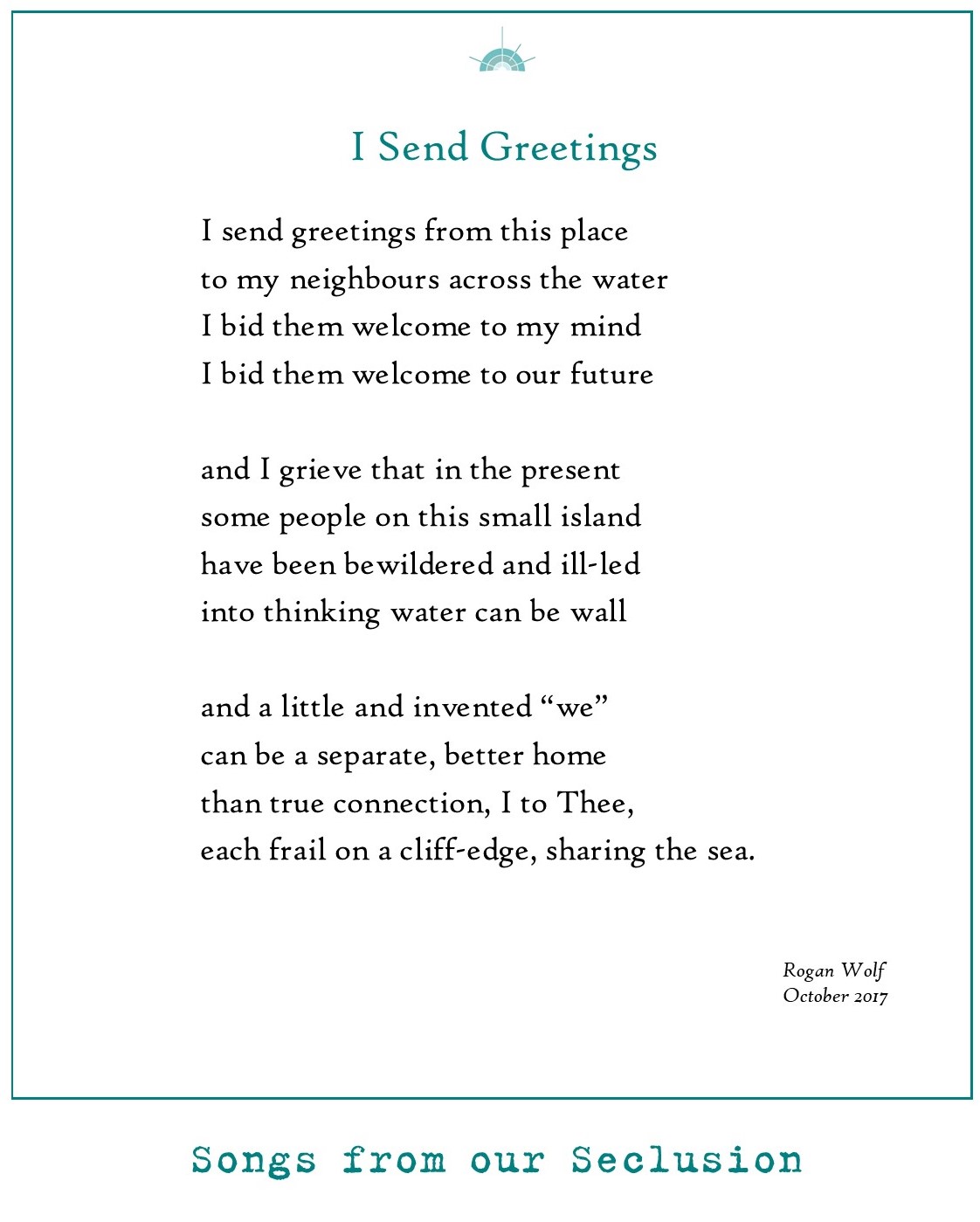
I do keep wanting to apologise to our fellow Europeans for the puerile and incompetent behaviour of the people who now have control of, and might seem to speak and stand for the UK, in these very dangerous times.
They do not speak or stand for me.
Here (again) is an apology to our neighbours across the water, written in a traditional English verse form called rhyme royal.
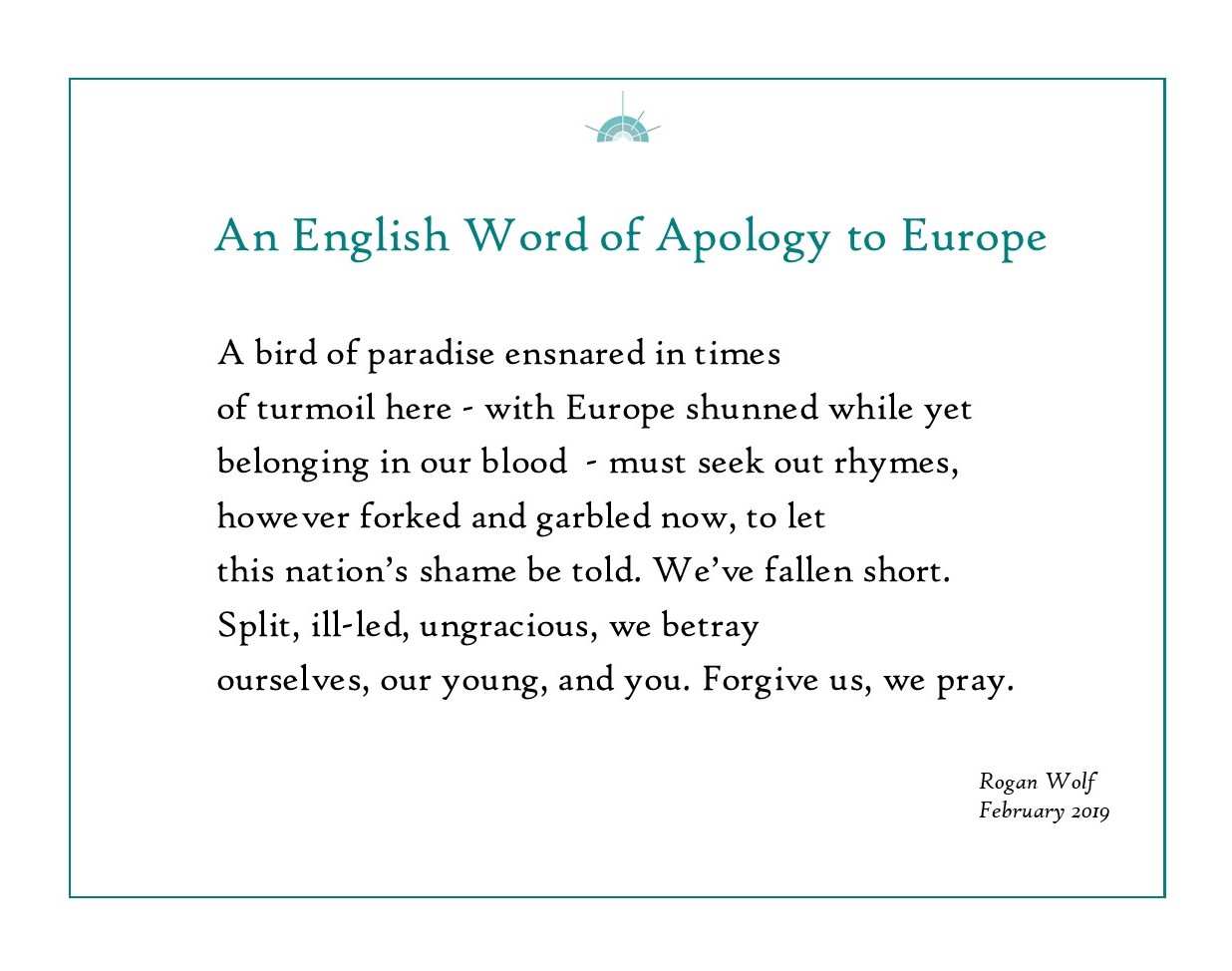
Posted:
-
Gaffe Man Spans the Globe
Congratulations to Jacinda Ardern for winning her landslide victory in New Zealand’s recent general election. And for her earlier, highly competent management of the Covid-19 virus there, in such dramatic contrast to Mr Johnson’s pathetic and disastrous flounderings here in the UK, half a world away (“alas, alas”).
Here is the message our hopeless Mr (“call me Boris”) Johnson sent her this past Saturday, following the news of her victory :
“Congratulations [Jacinda Ardern] for winning a second term as New Zealand PM. From our work together to tackle climate change to forging an exciting new trade partnership, the UK and NZ have great things to look forward to in the future.”
I’m really looking forward to that exciting, nay, world-beating and oven-ready deal Mr (“call me Boris”) Gaffe Man Johnson will soon be agreeing with New Zealand, to fill the small gap in our arrangements left by the EU, our friends and neighbours across the channel.
Our disgraceful, deceitful, dangerous, law-breaking Gaffe Man will soon be spanning the globe.
Posted:
-
My Way to You
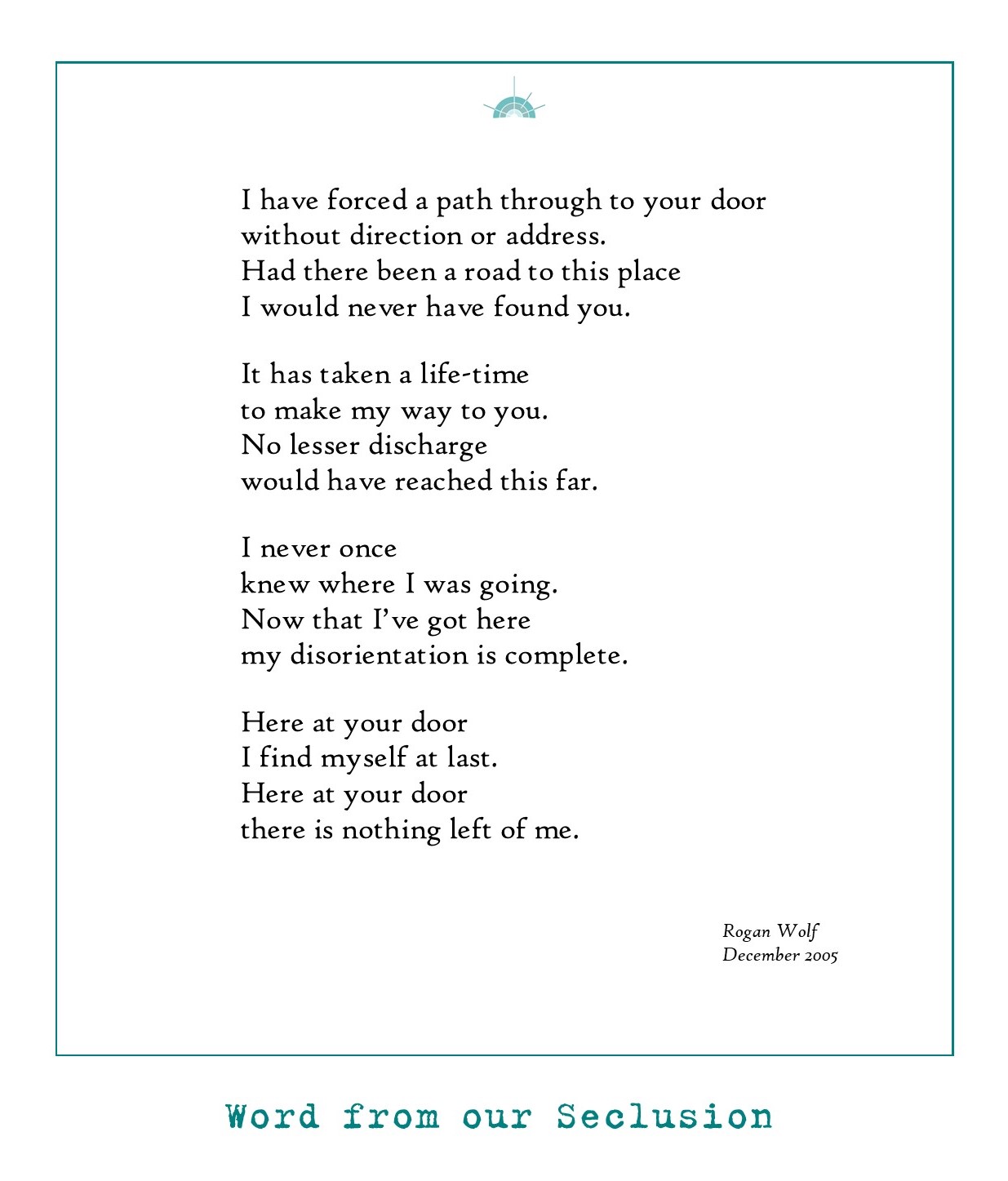
I keep coming upon this poem in its folder, its digital “archive,” and it’s as if I’ve tripped up on it. It somehow sticks out, sitting meekly under “M” in its alphabetical order. But where really does it belong ? I never quite know what to make of it and yet I think it is possibly a poem I would like to be remembered by, if anything I’ve written proves worth the remembering.
And I’m still not even entirely sure what it means. Certainly, I remember that in the writing of it, I was aware of somehow blundering blindly along, and if there were any struggle involved in this, it was to allow the blundering to continue until it was finished with me. At no stage did I know what would be coming next, or where this was heading. There was no “You” I had in conscious mind.
Posted:
-
Homecoming
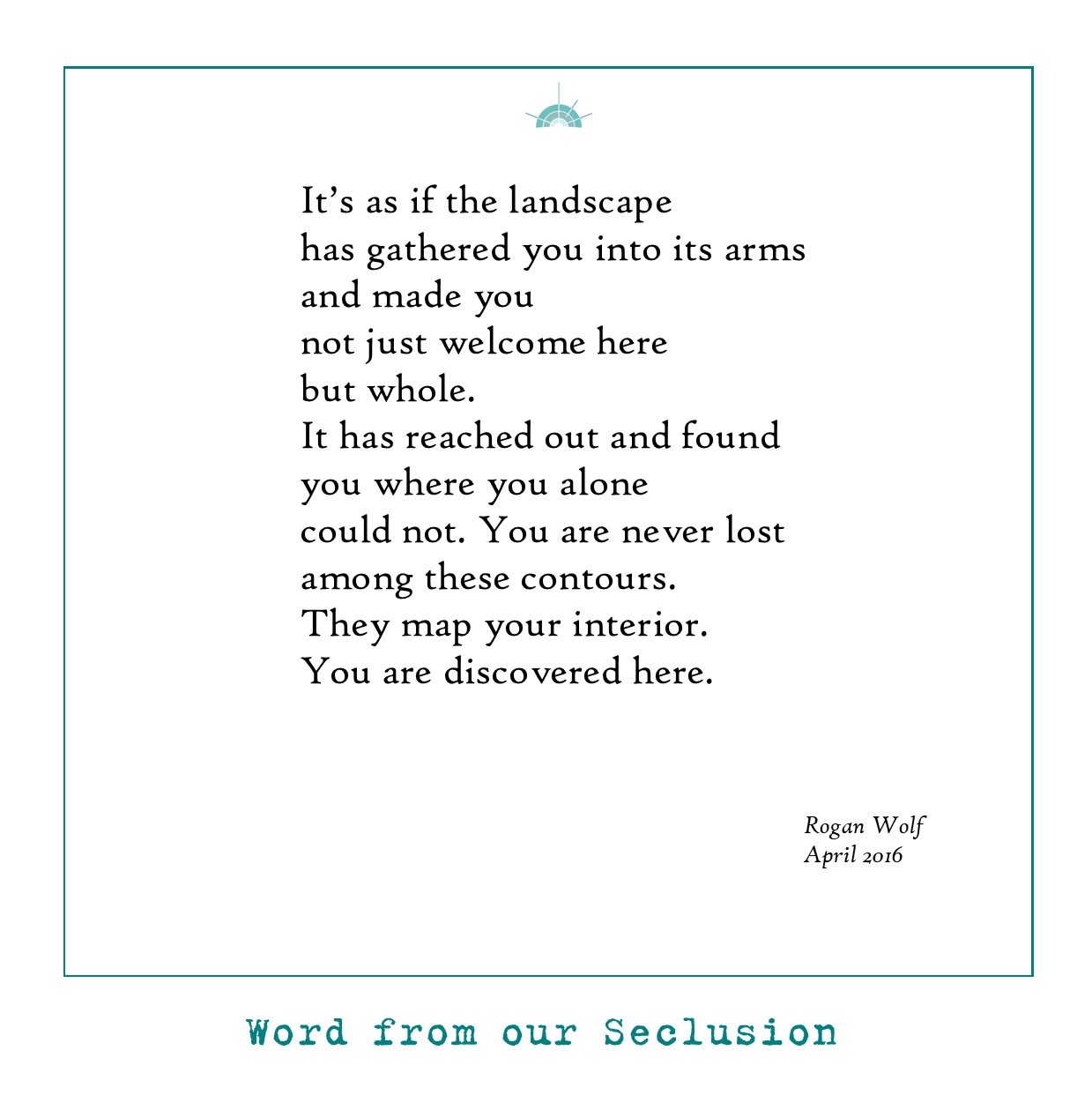
The “home” I was thinking of when I wrote this poem is a particular landscape I happen still to love, not only because, in its own way, it is beautiful, but because I associate it with a seminal time in my life, a time of growth, of emergence, of true beginning. And at that time, it already seemed to me a truer home than anywhere I had previously called home. And also, somehow, it was, and still is, a landscape large enough for gods to live in.
But other people have read the poem differently. They see the landscape described here as our own bodies. We are learning to make ourselves at home in our own skins. We are learning how.
My dear friend across the years, Nick Pole, was the first to understand it in this way. He is a Shiatsu practitioner and teacher, and has written a refreshing book called “Words that Touch.” He included the poem in it and readers have reacted strongly and positively, to the extent that one person was a bit shocked – and perhaps even disappointed ? – that the poem’s writer did not in the first place mean it in the same way that she received it.
So it seems that there are many levels and kinds of “home.” Perhaps it is a state of being, a knowledge of belonging – not just somewhere or something to belong to, or travel back to.
Posted:
-
Wild Honey UK 2020
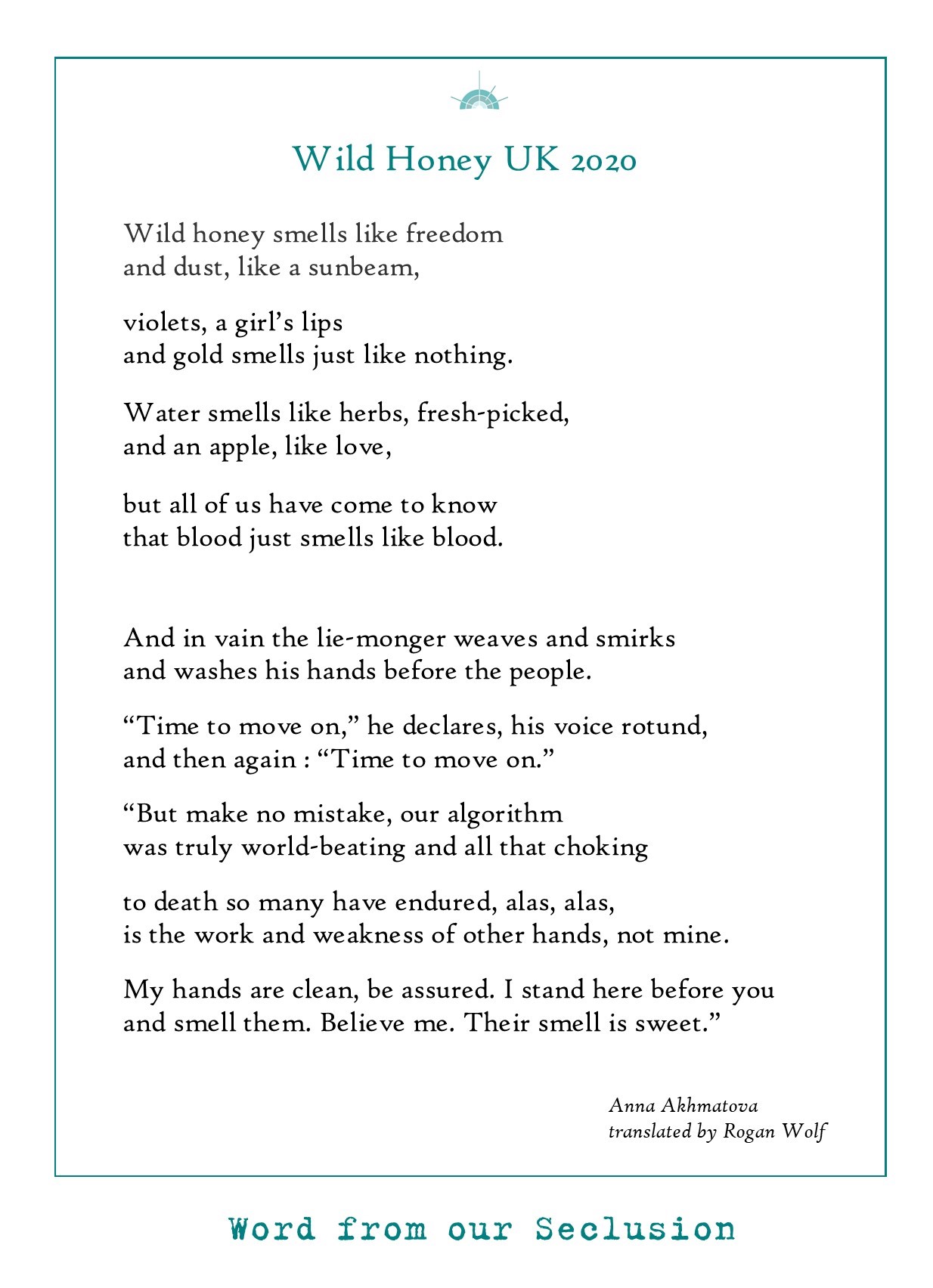
This poem above is actually a very loose translation of “Wild Honey” by the great Russian poet Anna Akhmatova.
The slightly altered title here is an acknowledgement of just how loose the translation is. The poem’s original was written (I think) in 1933. Stalin had been in power for around a decade and his purges were beginning.
I do not know Russian and have worked instead from other English translations, principally those by Jo Shapcott (as reproduced by “Moderrn Poetry in Translation) and Katie Farris and Ilya Kaminsky (as reproduced by the Indiana Review, Indiana University).
Akhmatova’s first verse, or section, is the more famous and the second is often left out of reproductions of her poem.
In that second section, Akhmatova uses two images of an unworthy leader : the first, Pontius Pilate (who washed his hands) ; the second, Mary Queen of Scots (who is suspected of being party to the murder of Lord Darnley). The poet would perhaps have preferred to refer more directly to Stalin, if she had been free to.
In the second section here, I go largely my own way and refer to my own time and country for images of unworthy leadership. In this, I am partly following Jo Shapcott’s example. But whereas her second section refers to the Iraq war, mine refers to the UK, in 2020. In doing so, I have no intention of implying that Mr Johnson’ s deployment of power is as tyrannical as Stalin’s, or includes Stalin’s murderousness. I am just observing a similar kind of fealty to the irresponsible Self and to the Lie.
Posted:

